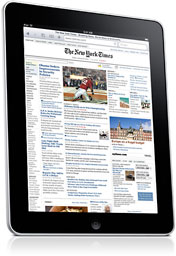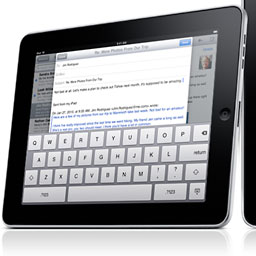When Dorothy, Toto, the Tin Man, and the rest were walking the
Yellow Brick Road, they found the Enchanted Forest a scary place
indeed, filled with "lions and tigers and bears, oh my!"
For too many computer users today, the equivalent chant might be
"files and folders and drives, oh my!"
I know some of us have gotten good at saving files and finding them
again when we want them, but for lots of computer users, this remains a
puzzle, along with far too much of what it takes to keep our personal
technology up and running, to say nothing of productive.
Software and hardware is generally designed by the people who are
comfortable with file systems, installing device drivers, and all the
rest, and who, despite generally good intentions, usually don't really
understand how frustrating their products can be for far too many
people.
For over a decade, Windows has provided users with My Documents, My
Music, My Videos, and similar folders, but many users still manage to
store everything on their (cluttered) desktops. Windows 7 tries to help
users with what Microsoft calls "libraries" of categories of files,
making them appear together regardless of where they are actually
located on your hard drive. I'm not sure it helps.
Some applications have simply taken the user out of the loop. Does
it matter to Mac users how Apple's iPhoto, for instance, organizes
their image files behind the scenes, as long as they can open them and
see thumbnails of all their photos?
 In
January, Apple - to no one's surprise - announced the iPad, a tablet computer, as had been widely
expected. Wildly over-hyped before the announcement (though not by
Apple, which managed to manipulate the media by saying nothing in
advance), afterwards much of the media claimed to be disappointed,
focussing on what they feel the iPad is lacking.
In
January, Apple - to no one's surprise - announced the iPad, a tablet computer, as had been widely
expected. Wildly over-hyped before the announcement (though not by
Apple, which managed to manipulate the media by saying nothing in
advance), afterwards much of the media claimed to be disappointed,
focussing on what they feel the iPad is lacking.
Many proclaimed it "just an over grown iPod touch" with no built-in
camera, no hard drive, no standard USB ports, and no memory card slots.
Less attention was paid to what else is missing: Like an iPhone or an
iPod touch, it keeps the user at a distance from all those messy things
- files and folders and drives, device drivers, software installers and
uninstallers, and the like.
These have divided computer users into two classes: a minority who
"get it" and everyone else, forced to rely on the technophiles for
help.
 I haven't
gotten my hands on an iPad; in fact, as I write, no Canadian release
date has even been announced. (And remember, Canada got the iPhone
about a year after our American cousins.) I don't know if it will prove
to be "magical" and a new category of product filling a middle ground
between smart phone and laptop, as Apple's Steve Jobs proclaimed.
I haven't
gotten my hands on an iPad; in fact, as I write, no Canadian release
date has even been announced. (And remember, Canada got the iPhone
about a year after our American cousins.) I don't know if it will prove
to be "magical" and a new category of product filling a middle ground
between smart phone and laptop, as Apple's Steve Jobs proclaimed.
Most of what we do with computers is either content creation or
content consumption. Apple showed off a few content creation
applications for the iPod - a new version of their iWork suite of word
processor, spreadsheet, and presentation software, and an inexpensive
third party paint program already available for the iPhone. But its
strength is going to be content consumption, browsing the Web (at least
those parts of the Web that don't use Flash); keeping in touch via
email, Facebook, Twitter, and the like; reading ebooks; watching video;
and listening to music.
And I suspect that when I finally get my hands on one, I'll find it
good at those tasks, somewhat awkward if I want to use it for writing
or keeping financial records, but superb at letting people use it
without needing to be aware of files and folders and drives.

First published in Business in Vancouver February 16 - 22, 2010
issue #1060

 In
January, Apple - to no one's surprise - announced
In
January, Apple - to no one's surprise - announced  I haven't
gotten my hands on an iPad; in fact, as I write, no Canadian release
date has even been announced. (And remember, Canada got the iPhone
about a year after our American cousins.) I don't know if it will prove
to be "magical" and a new category of product filling a middle ground
between smart phone and laptop, as Apple's Steve Jobs proclaimed.
I haven't
gotten my hands on an iPad; in fact, as I write, no Canadian release
date has even been announced. (And remember, Canada got the iPhone
about a year after our American cousins.) I don't know if it will prove
to be "magical" and a new category of product filling a middle ground
between smart phone and laptop, as Apple's Steve Jobs proclaimed.
